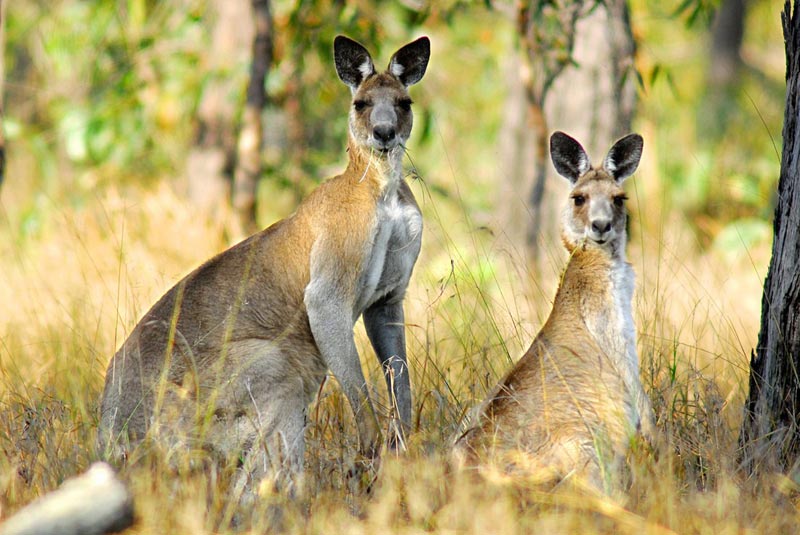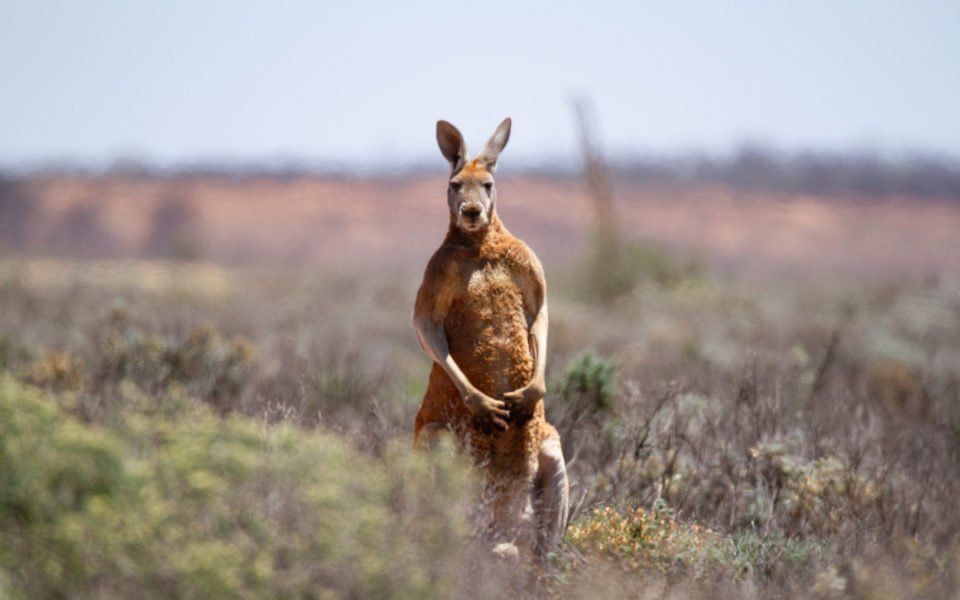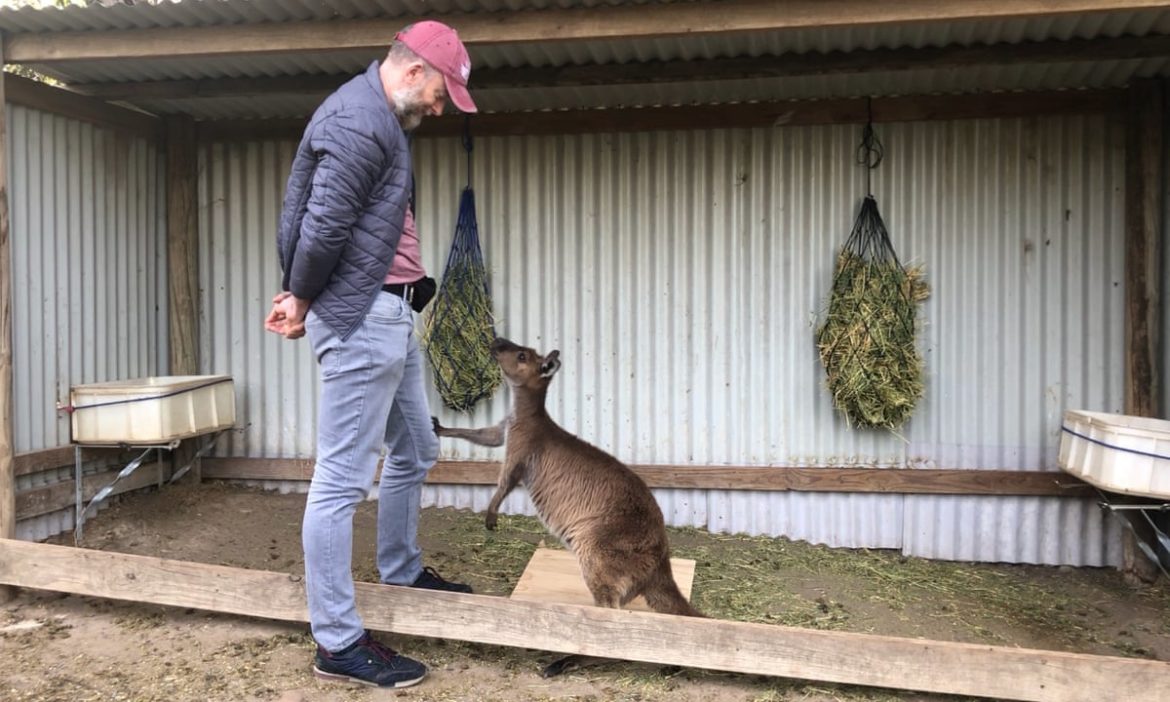Human-kangaroo- communication. A new study reveals how kangaroos can ‘talk’ to humans with their gaze.

The following written content from DW
A group of academics from the United Kingdom and Australia have discovered that kangaroos can communicate with humans in the same way pets do. The roos use their gaze to ask for help finding food.
Domesticated kangaroos would gaze at humans or at a sealed box of food in a bid to enlist help
Kangaroos can intentionally communicate with humans in a similar way to domestic pets, according to a new study published by the University of Sydney and the University of Roehampton in London.
Australian and British researchers discovered that kangaroos use an intense gaze when they are unable to find food.
Their study said they use powerful eye contact when they want humans to help.

Academics carried out a series of experiments at three wildlife sanctuaries across Australia by putting food in a closed plastic container.
Just like dogs, the roos gazed at the researchers when they tried and failed to open the container themselves.
“Their gaze was pretty intense,” said co-author Alexandra Green, a post-doctoral researcher in the Sydney School of Veterinary Science at University of Sydney.
Eye to eye communication as a man saves his dog and squares off with a kangaroo
“We’ve previously thought only domesticated animals try to ask for help with a problem, but kangaroos do it too.”
“Domesticated” animals are those that have been selectively bred over generations to live alongside humans.
As a result, horses and goats can also be described as domesticated, just like common household pets like cats and dogs.
The 16 kangaroos that took part in the study were not from the wild. Researchers said wild kangaroos would be too fearful around humans.
Experts used captive animals instead who were familiar with humans, while still being non-domesticated.
The cognitive abilities of marsupials — mammals which carry their young in a pouch, such as kangaroos — have rarely been investigated, according to the academics. Read more from DW
Follow similar interesting unbiased news stories from News Without Politics






